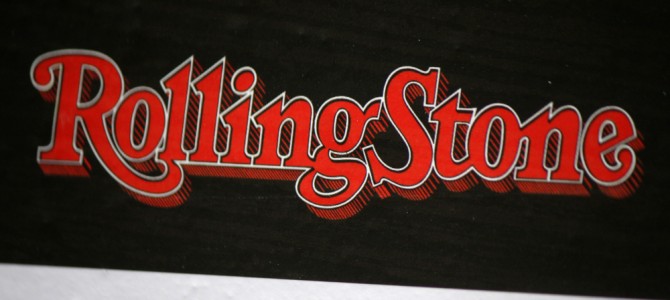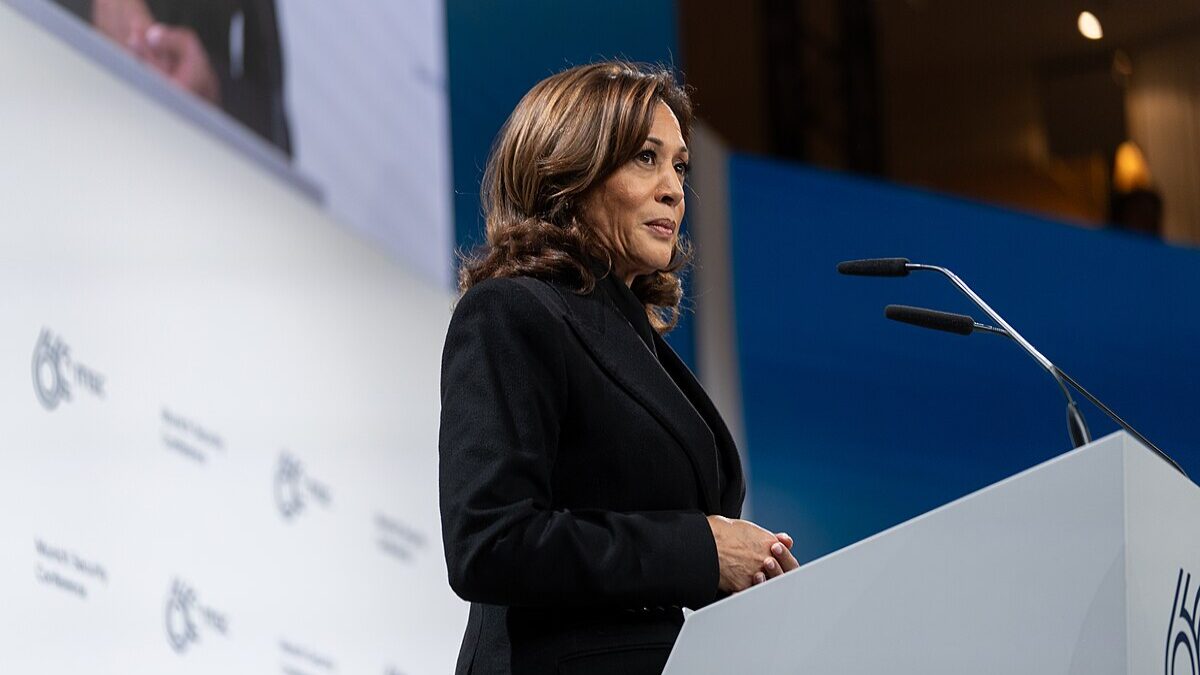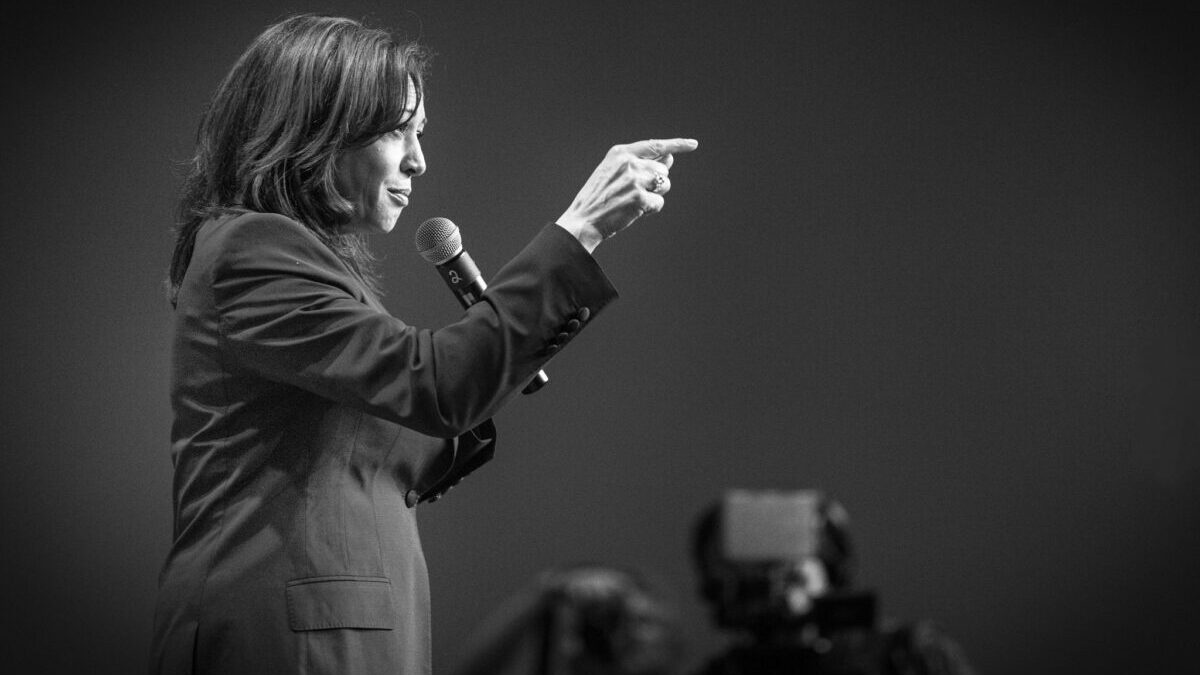
Several days ago, Rolling Stone published a horrifying tale of a gang rape at a University of Virginia fraternity. Jackie (her real name, we’re told) says she was on a date at a frat party with a boy she liked and knew well. He took her upstairs at his fraternity house, into a completely darkened room, and orchestrated an unspeakably brutal rape by seven men, she said. He and another man observed. The rape began by pushing her onto a glass table that shattered, she said. She reported the violence, which included rape by beer bottle and assault to her face, occurred on a bed of broken glass.
Jackie finally escaped, bloodied and battered. She attracted no known attention as she left the house. She said she called three friends. One thought that maybe she should go to the hospital while the others thought it would hurt their chances at being invited back to the fraternity house.
The reaction to the piece was swift and fierce. All fraternity activities at UVA have been suspended, the campus community is calling for reform, and the story has generated nationwide attention. In general, the story comes at a time when people across the political spectrum are demanding explanations for why colleges don’t do a better job of report sexual assaults to the police. With the police now on the case of this incident, albeit years after it allegedly occurred, people are hoping that some justice will be meted out.
All of which brings us to an interesting story about how the journalism regarding this incident has been handled.
Journalistic norms
The first person to raise questions, apparently, was editor Richard Bradley. A former editor of fabulist Stephen Glass, Bradley wrote about some questions he had about the central anecdote on which the entire article is based.
Nothing is terribly surprising, journalistically, in “Is The Rolling Stone Story True?” I didn’t go to journalism school but every editor I’ve ever worked with on a hot story asked the same type of questions he asks in this piece.
He notes that the story could of course be completely 100% true but that for a variety of reasons he doesn’t believe that it happened in the way it is described. He is critical in part because this story plays into existing biases about fraternities, men, the South, young women, rape culture, and university bureaucracies.
He notes that Jackie is never identified. That the three friends are not interviewed and not named. One, we’re told, declined an interview out of loyalty to his own fraternity. Also this:
Then there’s the fact that Jackie apparently knew two of her rapists, but they are not named, nor does Rubin Erdley contact them, which is basically a cardinal rule of journalism: If someone in your story is accused of something, you’d better do your damnedest to give them a chance to respond. There’s no sign that Rubin Erdley did so. Why not? Did she not know their names? Would Jackie not tell her? Because if Rubin Erdley knew their names and didn’t call them, that is horrible journalism and undermines confidence in her reporting. And if she didn’t know their names—well, we’re back in Patrick Witt-land again.
He goes on to detail other concerns.
Others have followed suit. Robby Soave at Reason wrote pieces about the initial story last week. “Treating rape as akin to plagiarism trivializes violence against women,” he wrote in one. This week he reflected on Bradley’s questions with a piece “Is the UVA Rape Story a Gigantic Hoax?”
Judith Shulevitz at The New Republic has also weighed in with “Rolling Stone Never Gave the Villains of Its Gang Rape Story a Chance to Defend Themselves.”
My own antenna went up on this article when I read the Washington Post’s piece, by Paul Farhi, about how the story was written. One thing in the article stood out as interesting and one thing was disconcerting. The interesting thing is that we’re told “Magazine writer Sabrina Rubin Erdely knew she wanted to write about sexual assaults at an elite university.”
There is absolutely nothing wrong with that, although it’s a bit telling how stories are chosen. She tried Harvard, Yale, Princeton and University of Pennsylvania before deciding on the University of Virginia. Note these two paragraphs:
Erdely spent weeks corroborating details of Jackie’s account, including such minutiae as her work as a lifeguard. She concluded: “I find her completely credible. It’s impossible to know for certain what happened in that room, because I wasn’t in it. But I certainly believe that she described an experience that was incredibly traumatic to her.”
Some elements of the story, however, are apparently too delicate for Erdely to talk about now. She won’t say, for example, whether she knows the names of Jackie’s alleged attackers or whether in her reporting she approached “Drew,” the alleged ringleader, for comment. She is bound to silence about those details, she said, by an agreement with Jackie, who “is very fearful of these men, in particular Drew. . . . She now considers herself an empty shell. So when it comes down to identifying them, she has a very hard time with that.”
Well that’s odd. I agree with Bradley completely that at least trying to interview the attackers is not optional. The fraternity in question was named. Drew’s identified by job and class. At least one other alleged attacker was known to Jackie from a class they took together. In other interviews, Erdely gives similarly cryptic non-responses to questions about journalistic diligence. The idea you’d corroborate work as a lifeguard but not talk to the people who are being accused of horrific violence boggles the journalistic mind.
Farhi writes that “In any case, there have been no outright denials from any party about the alleged crime Erdely reported, a rarity given the relative specificity of the allegations and the enormous impact of the story.” Except that the specificity is in no way specific enough to make the Post’s claim stand up. Who, exactly, would issue a denial? And on what grounds, exactly? Erdely certainly should have made sure that these alleged attackers existed and that, if so, they had a chance to respond. But I am not sure it’s “rare” for anyone specific to issue a denial for something as vague as the claims being made here.
Farhi wisely followed up in another piece “Author of Rolling Stone article on alleged U-Va. rape didn’t talk to accused perpetrators.” In it, he writes, “Erdely declined to address specific questions about her reporting when contacted on Sunday and Monday” and “Erdely indicated that she was unable to locate the fraternity brothers in the course of her reporting to get their side of the story.” She has their nicknames, their fraternity, their classes, and other details. If they were truly that hard to locate, that is noteworthy and should have been mentioned in the 9,000-word story.
How Not To Respond
Absolutely no one knows what happened in the alleged incident other than the people involved. We have no known hospital records, no police records, no corroborating eyewitness testimony, no discussion with the alleged perpetrators, no discussion with the three friends we’re told saw her in the immediate aftermath, no discussion of physical evidence (e.g. What happened to the dress the victim wore? How bad are the victim’s scars from the shattered glass? How were they treated?).
People who have accepted the story uncritically don’t know what happened any more than people who are skeptical of aspects of same.
If one believes that this story, as written, satisfies journalism norms about checking claims made by sources and allowing people to defend themselves against claims made about them, one should make the case in response to the questions people are raising.
Here are some ways not to do it.
There are UVa truthers, because of course http://t.co/Gf6gtlzCQd
Marin Cogan (@marincogan) December 1, 2014
Slate’s Jamelle Bouie agreed. As did this Planned Parenthood official.
Now, maybe asking that claims of unspeakably brutal gang rape be better substantiated does make you a conspiracy theorist. But I don’t see how. And claiming that you’re a crazy “truther” when you raise questions is not going to convince many people. This “gaslighting” seems like an unnecessary short-cut to having a healthy conversation.
One journalist I follow on Twitter was outraged by the initial reports. She’s an alum of UVA and is incredibly disappointed in how her institution has handled sexual assault claims. Still, she expressed concern at the journalistic practice of not interviewing the accused. She said checking claims is “journalism 101.” I agree.
But other media dismiss any questions about the story as a function of sexism. And let’s note how Jezebel is responding to questions about the journalism behind the story.
Writer Anna Merlan never manages to answer any of the questions raised by those concerned about the journalism practices but she does manage to spew out errors and mischaracterize those who do have questions (you can read more here or here).
In summary, what we have here are two dudes who have some vague suspicions and, on that basis, are implying that Ederley either fabricated her story or failed to do her due diligence and didn't fact check what Jackie told her. Never mind that she gave a long interview to the Washington Post this weekend about the weeks she spent fact-checking the story. Erdely explains in that interview, too, that she won't discuss some details about Jackie's alleged attackers because of an agreement she made with Jackie, who is, she tells the paper "very fearful of these men, in particular Drew. . . . She now considers herself an empty shell. So when it comes down to identifying them, she has a very hard time with that." But never mind Erdely's months of work. Two guys who have no idea what they're talking about don't believe it. Case closed.
Nope. See, you could spend years “fact-checking” a story and if your fact checking doesn’t involve, you know, talking to the alleged perpetrators, the people we’re told saw her immediately afterwards, or anything else apart from time spent as a lifeguard, it’s not really going to answer the questions raised by editors and others who see question-asking as a good journalism trait. Journalists should also be aware that memory is a tricky thing even under the best of conditions. The science on how our memories can be warped is quite interesting, but under no cases should journalists write up a traumatic event using only the memory of one person without any attempt to corroborate the details of the event. Checking the lifeguard status is a great start as opposed to an end point, then.
Maligning those who ask questions as conspiracy theorists or idiots is not what journalists should be in the business of doing. Journalists should also not just accept stories without asking questions. Question asking is not a tool of the patriarchy, y’all. It’s just journalism 101. It should be celebrated, not shamed.
Bret Stephens wrote at the Wall Street Journal:
It isn’t surprising that a generation of journalists schooled in the idea that “narrative” contains truth independent of fact are so easily taken in by stories that ultimately prove less than accurate, if not utterly untrue. Nor is it surprising that American distrust in the news media is near an all-time high. Bad journalism is bad for journalism, and good journalists have a responsibility and an interest in calling out sensationalist stories whose details ring false even as they play to what we’re inclined to believe is true.
It’s not just about journalism, though. It’s wonderful if journalism can help victims of crimes and hold criminals accountable. One of the ways it can do that is by being ruthlessly diligent in how stories such as this are reported. We know from past experience that uncritical acceptance of source’s stories can lead to bad results. So it’s in the best interest of everyone if journalists check out all claims, no matter how sensitive.
Maybe Erdely has good reasons for not being forthright yet about the due diligence she performed in this case. I hope she and her editor can do a better job of answering the growing questions about how this story was reported.







